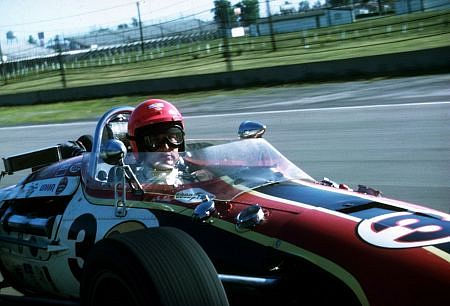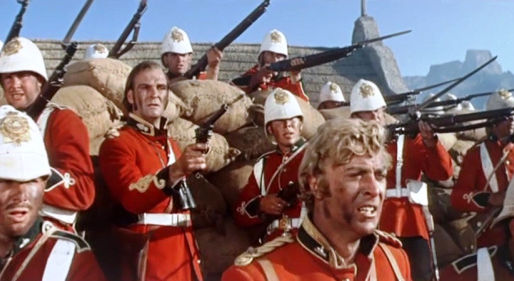top of page
Search
1960's
Classic Films from the 1960's


Winning (1969)
Winning (1969) is a racing drama that occupies an intriguing space in the career of Paul Newman and in the pantheon of American sports films. Often overshadowed by Newman’s better-known works like Cool Hand Luke (1967) or Butch Cassidy and the Sundance Kid (1969), Winning holds significance not only for its portrayal of the high-octane world of professional car racing but also because it sparked Newman’s real-life passion for motorsports.

Soames Inscker
5 min read


Grand Prix (1966)
Grand Prix (1966) is a monumental achievement in sports filmmaking, widely regarded as one of the most visually stunning and technically groundbreaking films about auto racing ever produced. Directed by the brilliant John Frankenheimer—hot off a run of critically acclaimed work like The Manchurian Candidate—the film blends fictional narrative with real-life Grand Prix racing to create a sweeping, globe-trotting cinematic spectacle.

Soames Inscker
4 min read


The Manchurian Candidate (1962)
John Frankenheimer’s The Manchurian Candidate (1962) is a chilling political thriller that remains as provocative and powerful today as it was during the height of the Cold War. Based on Richard Condon’s 1959 novel, the film is a masterful blend of psychological drama, paranoid satire, and social commentary—a heady cocktail of suspense and surrealism that explores themes of brainwashing, McCarthyism, authoritarianism, and maternal domination.

Soames Inscker
5 min read


Blow Up (1966)
Michelangelo Antonioni’s Blow-Up (1966) is a landmark of 1960s cinema—a work that simultaneously captures the cultural and aesthetic energy of Swinging London and interrogates the very nature of reality, perception, and meaning. It was Antonioni’s first English-language film, and perhaps his most internationally influential, earning the Palme d’Or at Cannes and launching a new era of art cinema into the mainstream.

Soames Inscker
5 min read


Point Blank (1967)
Point Blank (1967) is a film of shattered time, splintered identity, and existential revenge. Directed by the visionary John Boorman in his first American production, it takes the skeletal framework of a pulp crime thriller and transforms it into a hypnotic, existential, and almost surrealist neo-noir.

Soames Inscker
5 min read


Knife in the Water (1962)
Roman Polanski’s Knife in the Water (Nóż w wodzie, 1962) is a taut, minimalist psychological thriller that marks one of the most assured debuts in the history of cinema. Released during the height of the Polish Film School movement, it broke with the dominant trend of war and historical themes to focus instead on contemporary tensions and the theater of interpersonal conflict.

Soames Inscker
4 min read


A Boy Named Charlie Brown (1969)
In 1969, amid the cultural thunderclap of the moon landing, the Woodstock festival, and the cresting waves of social revolution, a small animated film arrived in theatres with gentle colours and sad piano chords.

Soames Inscker
5 min read


Winnie the Pooh and the Honey Tree (1966)
With Winnie the Pooh and the Honey Tree, Walt Disney introduced American audiences to A.A. Milne’s beloved bear of very little brain, forever altering the way the world would picture the characters of the Hundred Acre Wood. Released on February 4, 1966 as a theatrical short (bundled with the live-action feature The Ugly Dachshund), Honey Tree was Disney’s first foray into adapting Milne’s Winnie-the-Pooh stories, and it would become the foundational text for decades of animat

Soames Inscker
4 min read


101 Dalmations (1961)
When One Hundred and One Dalmatians premiered in 1961, it marked a decisive departure from the lush, romantic fairy-tale aesthetic that had defined Disney’s animated features up to that point.

Soames Inscker
5 min read


The Taming of the Shrew (1967)
Franco Zeffirelli’s 1967 adaptation of William Shakespeare’s The Taming of the Shrew is a riotous, visually extravagant, and unashamedly theatrical film. Starring Richard Burton and Elizabeth Taylor at the height of their volatile real-life romance, the film turns the Bard’s problematic comedy into an electrifying battle of the sexes, a lush Renaissance spectacle, and a showcase for its leading couple’s magnetic chemistry.

Soames Inscker
4 min read


El Cid (1961)
El Cid is one of the grandest and most ambitious historical epics of the 1960s, a decade marked by a wave of lavish, widescreen spectacles. Directed by Anthony Mann and starring Charlton Heston and Sophia Loren, the film dramatizes the life of Rodrigo Díaz de Vivar—better known as El Cid—a legendary Spanish hero whose military prowess and moral code helped shape the Reconquista of medieval Spain.

Soames Inscker
5 min read


The Anniversary (1968)
The Anniversary (1968) is a darkly comic, offbeat British film that delivers a masterclass in screen villainy through a deliciously wicked performance by Bette Davis. Adapted from the play by Bill MacIlwraith, the film blends elements of domestic drama, grotesque comedy, and psychological torment.

Soames Inscker
5 min read


Bonnie and Clyde (1967)
When Bonnie and Clyde premiered in 1967, it detonated a cultural and cinematic explosion whose shockwaves still reverberate. It wasn’t merely a film about Depression-era outlaws—it was a defiant cry from a generation eager to dismantle Hollywood’s golden-age conventions. Violent, stylish, erotic, and subversively funny, Bonnie and Clyde was both a thrilling crime saga and a radical turning point in American cinema.

Soames Inscker
5 min read


Barbarella (1968)
Barbarella (1968) is a psychedelic, erotic, and often absurd space opera that defies traditional cinematic classification. Directed by Roger Vadim and starring Jane Fonda in one of her most iconic and polarizing roles, the film adapts Jean-Claude Forest’s French comic strip into a freewheeling, surreal exploration of science fiction, sexual liberation, and pop-art aesthetics.

Soames Inscker
5 min read


The Time Machine (1960)
George Pal’s The Time Machine (1960) is a landmark in cinematic science fiction and one of the most enduring film adaptations of H.G. Wells’ literature. With its elegant blending of philosophical inquiry, imaginative visuals, and Cold War–era anxieties, this adaptation reimagines Wells’ 1895 novella as both a thrilling time-travel adventure and a contemplative warning about humanity’s future.

Soames Inscker
4 min read


Zulu (1964)
Zulu (1964) stands as one of the most iconic British war films ever made. Based on the real-life 1879 Battle of Rorke’s Drift during the Anglo-Zulu War, the film dramatizes the desperate defense of a remote mission station by a small contingent of British soldiers against thousands of Zulu warriors. Directed by American expatriate Cy Endfield and produced by its star, Stanley Baker, Zulu is an enthralling combination of widescreen spectacle, military drama, and character stud

Soames Inscker
5 min read


Von Ryan's Express (1965)
Von Ryan’s Express (1965) is a taut, thrilling, and occasionally unconventional World War II adventure film that combines the high-stakes tension of a prisoner-of-war drama with the pulse-pounding spectacle of a heist-like escape. Directed by Mark Robson and starring Frank Sinatra at the height of his cinematic charisma, the film rides a narrow but effective track between traditional war movie conventions and a more modern, morally ambiguous hero narrative.

Soames Inscker
5 min read


For a Few Dollars More (1965)
For a Few Dollars More (Per qualche dollaro in più), released in 1965, is the second entry in Sergio Leone’s legendary Dollars Trilogy, a follow-up to A Fistful of Dollars (1964) and a prelude to The Good, the Bad and the Ugly (1966).

Soames Inscker
5 min read


A Fistful of Dollars (1964)
A Fistful of Dollars (Per un pugno di dollari, 1964) is more than just a Western—it is a seismic event in film history.

Soames Inscker
5 min read


Two for the Road (1967)
Directed by Stanley Donen and starring Audrey Hepburn and Albert Finney, Two for the Road (1967) is a sophisticated, emotionally resonant, and structurally daring exploration of love, marriage, and memory.

Soames Inscker
4 min read
bottom of page


